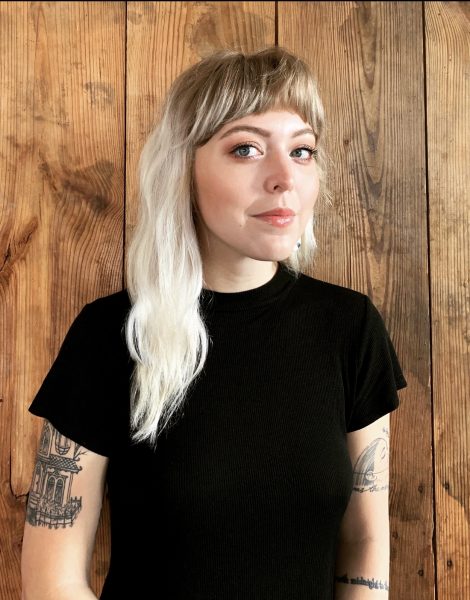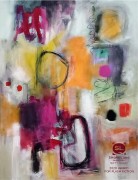Reading your story “To Pieces” is a sensory experience—perhaps one of the most sensory driven stories I’ve ever come across. It includes poetic language throughout. Tell us more about this approach to this story and why you made some of these literary choices.
I wanted this story to be about violence without having to write the actual violence happening, if that makes sense, and to do this I found myself leaning into poetic language to make everything in the story harsh. Because so much information in the piece is withheld, or given slowly to the reader, I wanted sensation to work to deliver the familial wounds of the story, and to hold the reader in that agony.
Since the story is so poetically driven, it brings up the discussion of genre and where you think the line between poetry and fiction falls. Do you agree that this story is poetically driven, or do you think I’m reading into that? Do you also write poetry?
This story is definitely poetically driven: I agree! When I’m writing short fiction, I find that I really focus in on the language of the story, as the compactness of the form really makes me aware of the feeling of each line. As someone who is predisposed to long-windedness, considering the poetics of my short work really helps me to engage with the form–I want to condense without negotiating. Everything stays, it just stays in a new way, and in the case of this story I found that because I couldn’t (and shouldn’t) spend pages articulating each character’s pain, that I would write it into sharp sound, into metaphor. While I don’t regularly write poetry, I am reading it all the time, and find that my prose really benefits from this!
Your narrative choices in the story are surprising, but not difficult to follow. While the focus of the narration switches between characters, it’s always clear which character we are reading. Can you tell us why you chose to write with each perspective in mind instead of focusing on one character for this story?
Originally, I tried to write this story from Mrs. Sauder’s perspective—it was rough! I wanted to keep distance between the characters; there is a tension smoldering between mother, father, daughter, and while I wanted each character to acknowledge the pain of the other, I didn’t want them to try to do anything about it, or try to understand it. When writing Mrs. Sauder as narrator, I found myself giving in and allowing her an insight into the other characters’ actions that didn’t feel honest. So, each character is given their own time to devolve and by the end of the piece, devolve as a unit.
The story can be summed up in one line—the second to last line, Something breaks—glass, bone, baby. It is representative of each character in the story broken in their way. Tell us more about the relationship between these characters. I want to know more—but it’s also so sad that I question that. Do I want to know more? Perhaps that’s one of the many reasons this makes great short fiction.
This story was helped along by a prompt—I knew I wanted to write about familial trauma but I couldn’t figure out how to enter the story. I was told to “write secrets.” I ended up writing about secrets. Originally, I had written much more of my characters, but felt that they, as individuals, were devouring what was unsayable in the text. I needed the unsayable to devour them! While the familial ties of the characters are acknowledged through their physical actions, the pain that exists in that bond is underscored to emphasize the descent to that final line. The flesh of the story is gutted away to reveal what holds the story up.
Finally, there is a lot going on in the world and in our country. What is some recommended reading you have for all of us during this time? Is there anything that you think we can’t live without?
Gloria Naylor’s Bailey’s Cafe or Lucy Corin’s One Hundred Apocalypses and Other Apocalypses or Ruth Ozeki’s My Year of Meats. These are texts I’ve reread recently and have always returned to again and again; I recommend reading them during any and all times.



 The core workshop of SmokeLong Fitness is all in writing, so you can take part from anywhere at anytime. We are excited about creating a supportive, consistent and structured environment for flash writers to work on their craft in a community. We are thrilled and proud to say that our workshop participants have won, placed, or been listed in every major flash competition. Community works.
The core workshop of SmokeLong Fitness is all in writing, so you can take part from anywhere at anytime. We are excited about creating a supportive, consistent and structured environment for flash writers to work on their craft in a community. We are thrilled and proud to say that our workshop participants have won, placed, or been listed in every major flash competition. Community works.